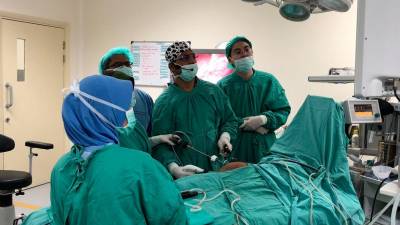PETALING JAYA: Malaysia’s record RM46.5 billion health budget for 2026 has been hailed as a step towards long-overdue reform – but experts warn that its true test lies not in the numbers, but in how the money is spent.
Universiti Malaysia Sarawak public health specialist Prof Dr Helmy Hazmi said the government’s focus on reform, equity and affordability reflects an encouraging shift in priorities after years of systemic strain.
“It is a shift in the right direction, and it reflects what the Health White Paper had called for,” he said.
While the increase in allocation was widely expected, Helmy said the rise remains modest – a single-digit increment compared to previous years. What matters most, he stressed, is how effectively the funds are channelled to where they are needed most.
“Each ringgit and sen must be utilised wisely – moving upstream into prevention, community-based initiatives and strengthening the primary care network, especially in Sarawak and Sabah,” he said.
Helmy welcomed the government’s move to offer permanent posts and higher allowances for medical and specialist officers, saying it addresses long-standing staffing shortages. However, he described the measures as “quite generic”, likely constrained by fiscal limits across sectors.
He said the emphasis on diagnosis-related group implementation, public–private partnerships and basic insurance schemes could improve efficiency if carefully managed.
“We must ensure that these partnerships add capacity to the Health Ministry, not drain its resources,” he said.
“More importantly, reforms must not create a two-tier system in which access depends on one’s ability to pay.”
Among the more forward-looking measures, Helmy highlighted the National Ageing Framework 2025–2045, calling it both timely and necessary.
“Malaysia cannot keep treating hospitals as long-term care homes. Dedicated funding for community-based and home care will make the system more sustainable as we move towards an ageing society.”
Helmy also backed the increase in excise duties on cigarettes, alcohol and tobacco, calling it both expected and essential.
“It’s good that the government intends to channel the additional revenue back into the Health Ministry for lung health, diabetes and heart disease programmes,” he said.
“That’s how a sin tax should work – not just to collect money, but to correct a public health imbalance.”
However, he urged the government to reserve such revenues for prevention and health promotion, adding that in previous years, such funds often ended up in the general pool.
Helmy further commended the continuation of tax relief for vaccinations and duty exemptions for nicotine replacement therapies, calling them “small but meaningful nudges” to encourage healthier lifestyles.
